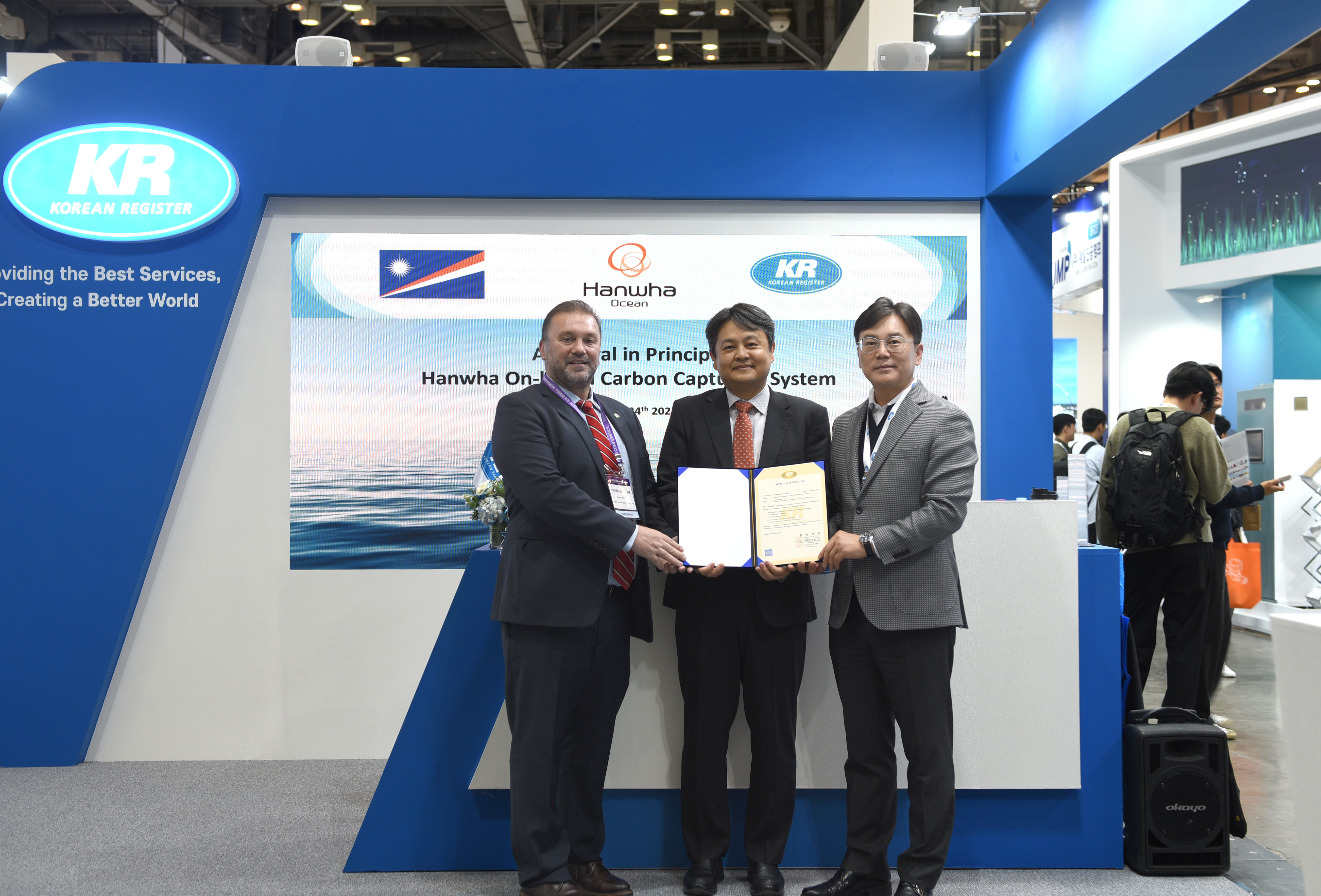KR, in collaboration with the Marshall Islands Registry, is pleased to announce the granting of an Approval in Principle (AiP) for an Onboard CO2 Capture System (OCCS) developed by Hanwha Ocean during Kormarine 2023 in Busan, South Korea.

With the International Maritime Organization (IMO) and the European Union (EU) strengthening regulations concerning greenhouse gas emissions, including the recent implementation of Carbon Intensity Indicator (CII) regulations earlier this year, shipping companies are faced with the imperative to closely monitor and reduce their vessels' carbon emissions to meet these stringent standards. Considering these evolving environmental regulations, onboard CO2 capture and storage technology has emerged as a promising solution to effectively address global emissions requirements.
The onboard carbon capture and storage technology developed by Hanwha Ocean absorbs CO2 generated on board using absorbents and converts it into mineral form. The OCCS incorporating this technology consumes very little energy compared to other CO2 capture technologies, and the amount of additional CO2 generated during its operation is relatively small. Furthermore, its compact design ensures efficiency in implementation.
KR verified the stability and suitability of the OCCS by reviewing classification rules and domestic and international regulations in collaboration with the Marshall Islands Registry.
YEON Kyujin, Head of KR’s Plan Approval Center, said, “Currently, the carbon capture and storage technology is expected to contribute a sizeable portion of the total global CO2 reduction, so market demand for this technology is growing. It is meaningful for us to preemptively respond to the demand and play a major role in commercializing OCCS technology with this successful AiP.”
Kang, Sang-Don, VP and Head of Hanwha Ocean’s Basic Design Department, commented, “The OCCS developed this time will be applied to 174K LNGC in the future. We will work to strengthen our competitiveness by developing eco-friendly technology that meets the ever-strengthening environmental regulations and the requirements of ship owners.”